ALN
All students will require some help or support at some stage in their schooling, but for some, they experience barriers to learning which are more persistent and require targeted and sustained additional provision. The role of the Additional Learning Needs team at the Maelor School is to assist in identifying the needs of our students and provide a comprehensive offer of interventions to complement the high-quality classroom teaching. It is our aim that all Maelor students thrive and enjoy their experience as they make progress toward their individual targets and outcomes.
Our Provision Offer
We take a person-centred approach to the support we offer our students which means we design our support package around the individual. We work closely with partner agencies and will often request advice from them to better inform the support we offer our students. These agencies include, but are not limited to, the Educational Psychology Service; CAMHS; the Neurodevelopmental team; Occupational Therapist; Speech and Language Therapy; Outside-in Counselling service; Inspire; Activ8.
Download ALN provision mapUniversal provision
The needs of the vast majority of students are met at the universal level. This is everything from the differentiated delivery that our class teachers employ to the range of additional interventions which a student may access to develop their literacy, numeracy, communication or wellbeing. At the universal level, interventions are intended to be short term and focussing on building skills and resilience to support engagement in mainstream lessons.
Additional Learning Provision (ALP)
For the minority of students who are unable to make progress or engage with their education when being supported at the universal level, it is necessary to put in place a package of ALP. All students who receive this level of support are considered to have additional learning needs (ALN) and will have an Individual Development Plan (IDP). We work closely with our ALN students and their families to write an IDP which describes their additional needs, identifies the aspirations and outcomes they are working towards and clearly sets out the support that is required to achieve those outcomes.
ALP is expected to be long term. It must be reviewed but often ALP will persist throughout a student’s time at the Maelor School. ALP may include a bespoke curriculum package, additional adult support in the classroom in the form of shared access to a Teaching Assistant, or the opportunity to complete some of their learning in one of our small group resourced provisions. It is not our practise to provide 1:1 Teaching Assistant support to a student except in extreme circumstances.



Requesting an ALN determination
If you believe that a child at the Maelor School requires further support and may have Additional Learning Needs (ALN) you can contact the school to request an ALN determination. To assist us in completing this process, please make this request in writing directly to the ALNCo, Chris Buckeridge, or Assistant ALNCo, Debbie Jupp, or in email to ALN@maelorschool.org.uk
The Additional Learning Needs (ALN) Code 2021
The ALN is the statutory guidance for schools and local authorities in Wales regarding meeting the needs of students with learning difficulties or disabilities throughout their education. It sets out the process for completing an ALN determination as well as the content that must be present in an IDP and the process for reviewing IDPs annually. More detail on how it is applied at the Maelor School can be found in our ALN Policy.
The definition of ALN as set out in The Additional Learning Needs Code is:
(1) A person has additional learning needs if he or she has a learning difficulty or disability (whether the learning difficulty or disability arises from a medical condition or otherwise) which calls for additional learning provision.
(2) A child of compulsory school age or person over that age has a learning difficulty or disability if he or she:
(a) has a significantly greater difficulty in learning than the majority of others of the same age, or
(b) has a disability for the purposes of the Equality Act 2010 which prevents or hinders him or her from making use of facilities for education or training of a kind generally provided for others of the same age in mainstream maintained schools or mainstream institutions in the further education sector.



 01948 830 291
01948 830 291 contact@maelorschool.org.uk
contact@maelorschool.org.uk
